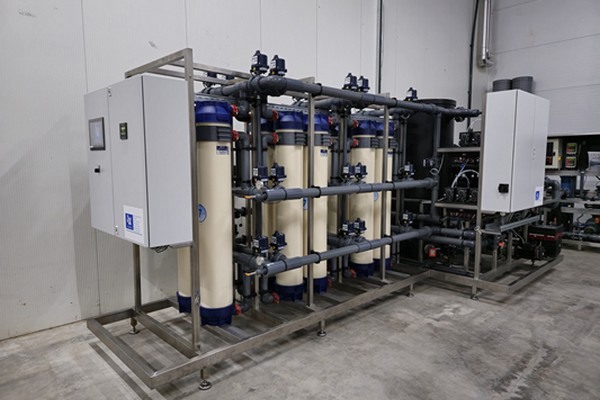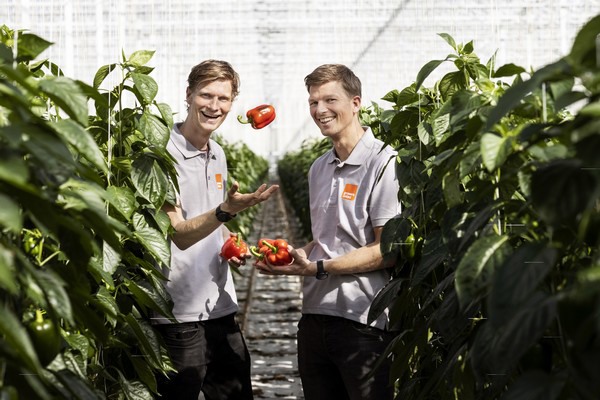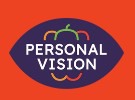When you buy a new business, you are sometimes positively surprised by the inventory. Like, for example, with an ultrafiltration system from Mienis Water. This is what happened to Personal Vision in Bleiswijk. This disinfection method was so successful that Growers United – the cooperative to which Personal Vision is affiliated – installed a second installation at the other location. Nick Persoon is very pleased with it. "It is like insurance; it brings peace of mind to our business."
Personal Vision has a solid base at Wilgenlei in Bleiswijk. The company, specialising in red and green peppers, grew from over 7 to 22 hectares in a short time, due to the acquisition of two neighbouring companies. Brothers Roy and Nick and their father Stephan Persoon set the bar high. Personal Vision grows block peppers for PapriCo, the pepper brand of the Growers United cooperative.

Water samples tell the story
"When we purchased Wilgenlei 10, we found out that there was an ultrafiltration system that was only a year old," Nick says. "We had never seen it before. At the company of our parents, we didn't have a disinfection system yet. For years, we kept the systems clean with chlorine dioxide in spring and autumn and stabilised hydrogen peroxide in summer."
The brothers did, of course, want to know about the positive impact of ultrafiltration. To this end, the last couple of years they took samples of drain and irrigation water in all departments. "This always showed that contamination was lowest in the department using ultrafiltration. Bacterial levels are very low and there are no secondary parasites like Pythium and Fusarium in the irrigation water," the grower explains. "We can't find them here. We do not see it reflected in higher production, but our crop looks good and healthy."

Water is much cleaner
This reaction did not come as a surprise to Jochum Genuït of Mienis Water. "Something many of our customers say is that an ultrafiltration system gives them more control over their crop while also experiencing a more stable production. Our system filters the water, ensuring the water structure remains unchanged. What is sure is that ultrafiltration leaves the water much cleaner than other techniques. There are no residues or dead organic material that can form a biofilm in the pipes or serve as a breeding ground for new infections."
Ultrafiltration is based on a membrane with larger pores than for reverse osmosis. While the membrane allows salts to pass through, it traps organic contamination, nematodes, fungi, bacteria, viruses and other particles in the water. This technique allows you to clean larger amounts of water than other disinfection methods, which, in addition, leave dead particles in the solution.
Purchase of second system
With the knowledge the brothers have since gained, they did not hesitate long to request an ultrafiltration system from Growers United for their location at Wilgenlei 34. The system has now been installed to their complete satisfaction with a capacity of 30 m3 per hour, serving an area of 7.3 ha.
At Wilgenlei 10, the ultrafiltration plant treats drain and rainwater separately, i.e. alternately, based on a capacity of 35 m3/hour. The latest plant is set up to premix the drain water with other sources, such as rainwater from basins, underground water storage and reverse osmosis. By then, this water is already at 0.8-1.2 EC. It then passes through the ultrafiltration plant, after which it is transported to a storage silo. This water is used by the irrigation unit and prepared as prescribed before it enters the greenhouse. This not only saves money, it also improves control over the treated water.
Not only the drain water
"I think the biggest added value of this working method is that all the water is already disinfected," Nick says. "Not only the drain water, but the rainwater as well. After all, that can also be contaminated with germs. We use algae mats and nano aeration for the rainwater, but hermetically sealing the rainwater storage is impossible."
The third and most recently purchased location is equipped with a UV disinfector. This only disinfects the drain water. "I just think that's a risk, because in practice, you will only start disinfecting the drain water in February or March. Before then, the plants have been growing for months and only received post-treatment with stabilised hydrogen peroxide or chlorine dioxide. So, things can still go wrong. In addition, a major drawback of UV is that it produces nitrite."
Like an insurance
"We feel very good about ultrafiltration. It's like a kind of insurance. It brings peace of mind to our business. And we now also have a closed water system, so we can use less chemicals. This is an important means to achieve our sustainability goals," Nick concludes.
The installation work was carried out with Pascal Voskamp of Hortifox. Together with Mienis Water, they turned it into a beautiful project.
From 11 to 13 June, GreenTech will take place in Amsterdam. Mienis Water will again demonstrate an ultrafiltration system at stand 01.614. They will also show their latest development: the HydroOxygen. Trials of this new technique – now over a year in peppers – show promising results.
For more information:
Mienis Water 
[email protected]
http://www.mienis-water.nl
Growers United 
[email protected]
www.growersunited.nl
Personal Vision 
[email protected]
www.personalvision.nl
